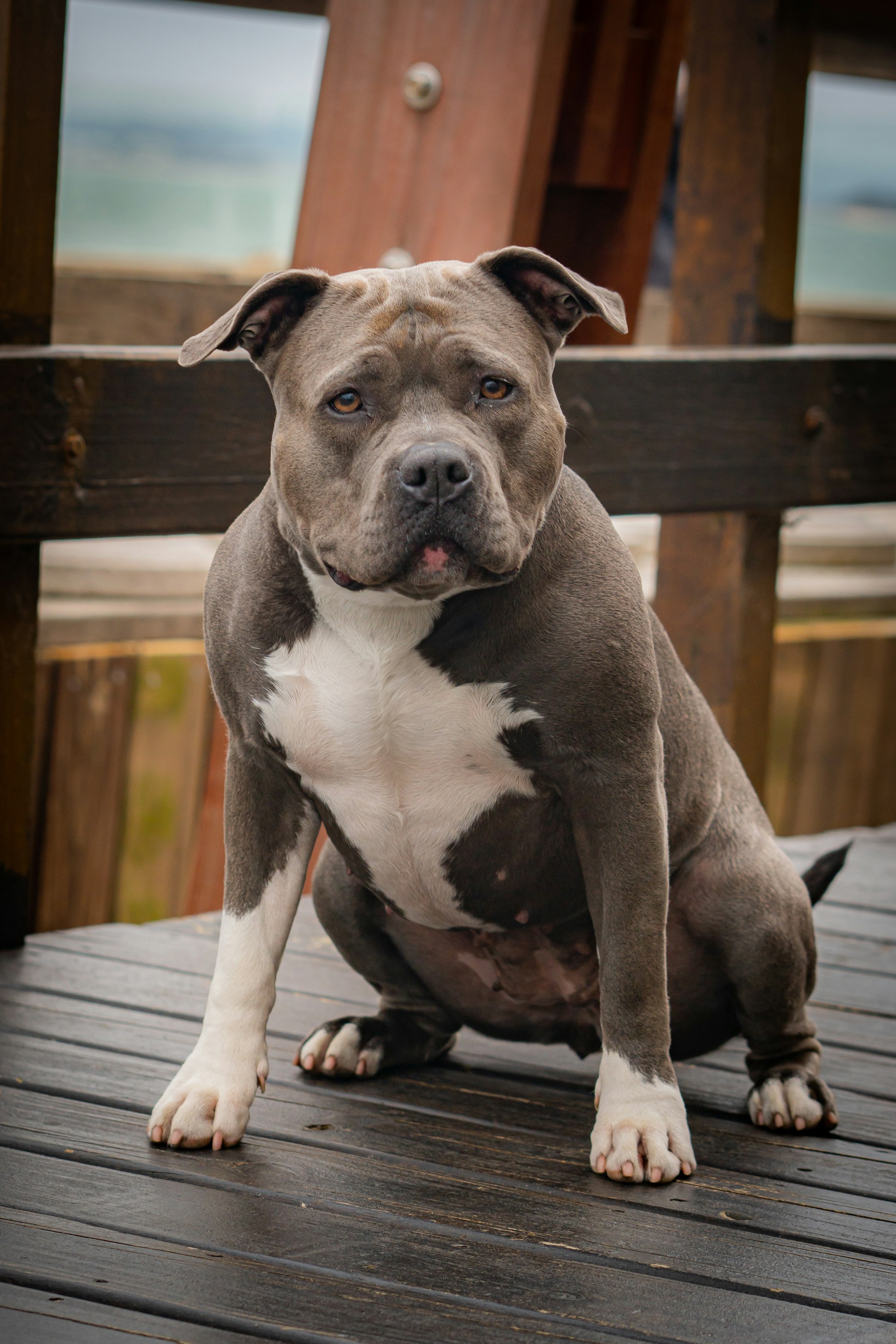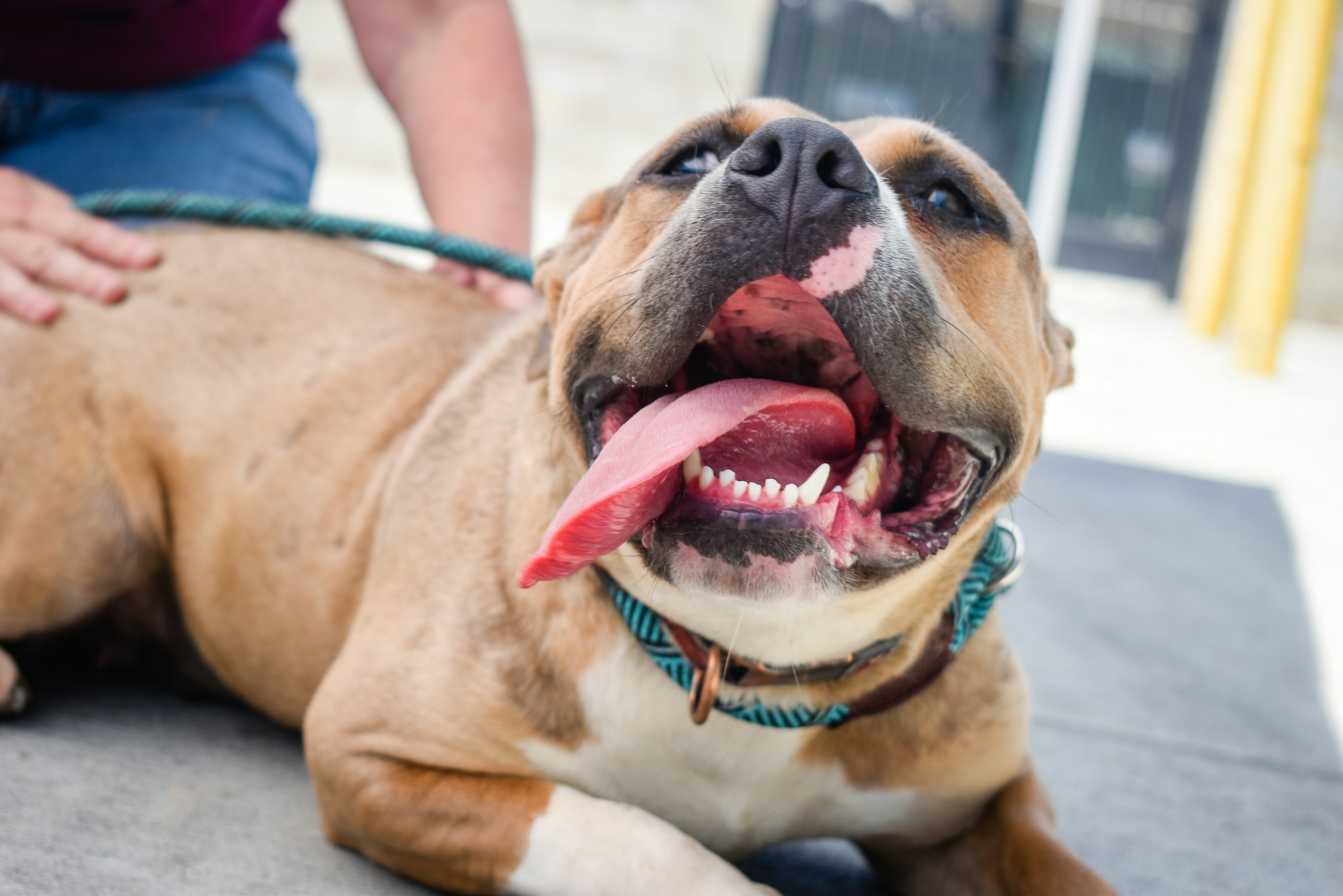Pit bulls, often misunderstood due to misconceptions and stereotypes, are known for their loyalty, strength, and affectionate nature. Like any other breed, understanding the lifespan of pit bulls is essential for their overall well-being and care. In this article, we will explore the factors influencing their lifespan, common health issues they may face, and how to increase their longevity.
Key Takeaway:
- Pit bulls have a lifespan influenced by various factors: The lifespan of pit bulls can be affected by genetics, diet and nutrition, exercise and physical activity, and healthcare and veterinary care.
- Pit bulls typically live for a certain period of time: On average, pit bulls have a lifespan of around 10 to 15 years. However, individual pit bulls may have shorter or longer lifespans based on various factors.
- Increasing the lifespan of pit bulls requires proper care: To increase the lifespan of pit bulls, it is important to provide them with a balanced diet and nutrition, regular exercise and mental stimulation, routine veterinary check-ups and vaccinations, and proper dental care and grooming.

How Long Do Pit Bulls Typically Live?
How Long Do Pit Bulls Typically Live? Pit bulls typically live for around 12 to 14 years, although some can live even longer. Regular exercise and a balanced diet are important for their overall well-being. Providing them with proper veterinary care and vaccinations can also support their longevity. Like all dogs, pit bulls require love, attention, and a safe environment to thrive. Socialization and training from an early age can help cultivate good behavior and ensure a healthy and fulfilling life.
What Can Affect the Lifespan of Pit Bulls?
Curious about what factors can impact the lifespan of pit bulls? Let's dive into the intriguing world of pit bull lifespans. From genetics to proper diet and nutrition, exercise habits, and healthcare, we'll explore how these elements can shape the longevity of our beloved four-legged companions. Get ready to uncover fascinating insights that shed light on the key components that contribute to the lifespan of pit bulls.
1. Genetics
| 1. Genetics |
| - Pit Bull lifespan is influenced by genetics. |
| - The average lifespan of Pit Bulls is around 12 to 14 years. |
| - Some Pit Bulls may live shorter lives due to genetic predispositions to certain health conditions. |
| - On the other hand, well-bred and healthy Pit Bulls with good genetics may live longer lives. |
To ensure the best genetics for your Pit Bull, it is important to obtain them from a reputable breeder who prioritizes health and longevity. Regular veterinary check-ups can also help detect and address any genetic health issues early on. Providing a balanced diet, regular exercise, and mental stimulation can help boost the well-being and overall lifespan of your Pit Bull. Remember, genetics play a significant role, but providing a loving and caring environment will also contribute to their longevity.
2. Diet and Nutrition
The diet and nutrition of pit bulls play a crucial role in their overall health and lifespan. Proper nutrition is essential to ensure their well-being and prevent health issues.
To understand the diet and nutrition requirements of pit bulls, consider the following table:
| Diet and Nutrition | Factual Assertions |
| 1. Balanced Diet | A balanced diet is crucial for pit bulls to meet their nutritional needs. It should include a mix of high-quality protein, carbohydrates, and healthy fats. |
| 2. Quantity | Pit bulls require a specific quantity of food based on their age, size, and activity level. The recommended daily calorie intake for an adult pit bull is around 1,200 to 1,800 calories. |
| 3. Nutritional Supplements | Supplements such as omega-3 fatty acids can enhance the skin and coat health of pit bulls. Consult with a veterinarian before considering any supplements. |
| 4. Hydration | Pit bulls should have access to fresh and clean water at all times to maintain hydration and support proper bodily functions. |
| 5. Avoid Harmful Foods | Some foods, such as chocolate, onions, and grapes, can be toxic to pit bulls. Avoid feeding them these harmful foods. |
By following a balanced diet and providing appropriate nutrition, pit bull owners can promote their pets' good health, maintain a healthy weight, and potentially prolong their lifespan. It is important to consult with a veterinarian to create a diet plan suitable for your individual pit bull's needs.

3. Exercise and Physical Activity
When it comes to exercise and physical activity, Pit Bulls require regular and adequate amounts to stay healthy and happy.
- Pit Bulls should engage in daily exercise to maintain their physical fitness. A minimum of 30 minutes to 1 hour of exercise per day is recommended.
- Activities such as brisk walks, jogging, or running are ideal for Pit Bulls, as they help burn off excess energy and keep them mentally stimulated.
- Engaging in interactive games like fetch or tug-of-war can provide both mental and physical stimulation for Pit Bulls.
- Swimming is a great low-impact exercise option for Pit Bulls, as it helps them stay active without putting much strain on their joints.
- Varying the types of exercise Pit Bulls participate in can prevent them from getting bored and help boost their overall well-being.
- By providing adequate exercise and physical activity for your Pit Bull, you can enhance their overall well-being and promote a longer and healthier lifespan.
How to Increase the Lifespan of Your Pit Bull?
Looking to boost the lifespan of your beloved pit bull? We've got you covered with some key tips! From providing a balanced diet and regular exercise to prioritizing routine veterinary check-ups and dental care, we'll walk you through the essential components of increasing your pit bull's lifespan. Get ready to learn how to keep your furry friend healthy, happy, and by your side for years to come!
1. Balanced Diet and Nutrition
A balanced diet and nutrition play a crucial role in determining the lifespan of pit bulls. Providing proper nutrition ensures that pit bulls receive all the essential nutrients they need to thrive and maintain optimal health.
A table can be used to illustrate the importance of a balanced diet and nutrition:
| Benefits of a Balanced Diet and Nutrition | Details |
| 1. Adequate Nutrient Intake | A balanced diet provides pit bulls with the necessary proteins, carbohydrates, fats, vitamins, and minerals essential for growth, development, and overall well-being. |
| 2. Healthy Weight Maintenance | A balanced diet helps in preventing obesity, which can lead to various health issues and reduce the lifespan of pit bulls. Proper portion control and feeding high-quality, nutritious food is essential to maintain a healthy weight. |
| 3. Strong Immune System | A well-balanced diet rich in antioxidants, vitamins, and minerals strengthens the immune system, reducing the risk of infections and diseases in pit bulls. |
| 4. Bone and Muscle Health | Calcium, phosphorus, and other important minerals present in a balanced diet support proper bone and muscle development, promoting strength and agility in pit bulls. |
| 5. Healthy Digestion | A balanced diet with appropriate fiber content promotes healthy digestion and prevents gastrointestinal issues in pit bulls. |
Ensuring a Pit Bull's diet is well-balanced and meets its nutritional needs is essential for its overall health and longevity. It is recommended to consult a veterinarian or a professional animal nutritionist to determine the specific dietary requirements for individual pit bulls based on factors such as age, activity level, and any underlying health conditions. Providing a balanced diet and proper nutrition is a key aspect of responsible pit bull ownership.

2. Regular Exercise and Mental Stimulation
Regular exercise and mental stimulation are crucial elements for maintaining the overall well-being and longevity of pit bulls. It is vital to incorporate these activities into their daily routine as they have numerous benefits for their physical and mental health. Here are some suggestions on how to provide regular exercise and mental stimulation for your pit bull:
- Daily walks or runs: Make it a goal to take your pit bull for brisk walking or jogging sessions lasting at least 30 minutes every day. This will assist in keeping them physically fit and preventing weight gain.
- Playtime: Engage in interactive play sessions with your pit bull using toys such as balls, frisbees, or tug ropes. Not only will this provide physical exercise, but it will also stimulate their mind and nurture their natural instincts.
- Obedience training: Consistent training sessions can help keep your pit bull mentally engaged. Teach them new commands or tricks, utilizing positive reinforcement techniques to ensure their learning experience is positive and enjoyable.
- Puzzle toys: Provide your pit bull with puzzle toys that require problem-solving skills. These toys will keep them mentally stimulated and prevent boredom, which can lead to destructive behaviors.
- Enrichment activities: Introduce new and diverse experiences for your pit bull, such as visits to unfamiliar places or socializing with other friendly dogs. This will provide mental stimulation and prevent them from becoming bored or anxious.
Remember, the amount of exercise and mental stimulation required may vary depending on your pit bull's age, health condition, and energy level. It is important to consult with your veterinarian to create a tailored exercise plan that suits your dog's specific needs. Regular exercise and mental stimulation not only contribute to a healthier and happier pit bull but can also help increase their lifespan.
3. Routine Veterinary Check-ups and Vaccinations
- Regular veterinary check-ups and vaccinations are crucial for the health of your Pit Bull. These check-ups allow the vet to monitor your dog's overall well-being and catch any potential issues early on. They also help identify health conditions, administer necessary vaccinations, and provide preventive care.
- Vaccinations play a vital role in maintaining your Pit Bull's health and preventing infectious diseases. Your veterinarian will recommend a vaccination schedule based on your dog's age, lifestyle, and potential exposure to certain illnesses. Common vaccinations for Pit Bulls include distemper, parvovirus, adenovirus, rabies, and bordetella.

A friend of mine diligently took her Pit Bull for routine veterinary check-ups and ensured he received all the necessary vaccinations. During one of these check-ups, the veterinarian detected early signs of heart disease in her dog. Thanks to regular visits, the condition was caught early, and the veterinarian was able to prescribe appropriate medication and recommend necessary lifestyle modifications. As a result, her Pit Bull lived a long and healthy life, far surpassing the average lifespan for the breed. The importance of routine veterinary check-ups and vaccinations cannot be overstated in ensuring the well-being and longevity of your beloved Pit Bull.
4. Dental Care and Grooming
Proper dental care and grooming are essential for maintaining the overall health and well-being of your pit bull. Here are some important aspects to consider:
- Regular brushing: Brushing your pit bull's teeth at least two to three times a week can help prevent tartar buildup, gum disease, and bad breath. Use a toothbrush and toothpaste specifically designed for dogs.
- Dental examinations: Schedule regular dental check-ups with your veterinarian to assess the condition of your pit bull's teeth and gums. The vet may recommend professional cleanings if necessary.
- Chewing toys: Provide your pit bull with appropriate chew toys to help keep their teeth clean and healthy. Chew toys can also prevent destructive chewing behaviors.
- Healthy diet: A balanced diet can contribute to good dental health. Choose high-quality dog food that supports dental hygiene. Some foods are formulated to reduce tartar and plaque buildup.
- Professional grooming: Regular grooming sessions are crucial for maintaining your pit bull's overall cleanliness and health. This includes brushing their coat, cleaning their ears, and trimming their nails.
By following these dental care and grooming practices, you can help ensure that your pit bull maintains healthy teeth and gums, which is essential for their overall well-being. Remember, consistent and thorough care is key to keeping your pit bull's dental health in top shape.
Some Facts:
Here are some of the facts about how long Pit Bulls live:
✅ Pit bulls have an average lifespan of 8-15 years.
✅ Staffordshire bull terriers, a type of pit bull, tend to live the longest, averaging between 12-14 years.
✅ American pit bull terriers generally live between 8 to 15 years.
✅ Regular exercise and a balanced diet are crucial for maximizing a pit bull's lifespan.
✅ Pit bulls, despite stereotypes, are loving and tender companion animals.

Frequently Asked Questions
1. How long do pit bulls live on average?
Pit bulls have an average lifespan of 8 to 16 years, with some individuals living into their twenties. The specific breed of pit bull also plays a role in determining their lifespan.
2. What factors impact a pit bull's lifespan?
Several factors can impact a pit bull's lifespan, including underlying health issues, spaying/neutering, exercise, and diet. These factors can either promote longevity or contribute to health difficulties.
3. Which pit bull breeds have the longest lifespan?
American Staffordshire Terriers and Staffordshire Bull Terriers are known to have the longest lifespans among pit bull breeds. American Pit Bull Terriers and American Bullies have slightly shorter lifespans.
4. How can I ensure my pit bull has a longer and healthier life?
To maximize your pit bull's lifespan, it is important to provide regular exercise, maintain a well-balanced diet, and schedule regular check-ups with a veterinarian. Monitoring their general health and addressing any issues promptly is also crucial.
5. Are pit bulls suitable for active owners or families?
Yes, pit bulls are known for their athletic abilities and energy. They thrive in active households, making them suitable for active owners or families who can provide regular exercise and engaging activities such as trips to the dog park, jogging, hiking, and playing fetch.
6. Should I consider adopting a pit bull from a shelter or buying from a breeder?
Both options can be viable, but it is important to ensure that the source (shelter or breeder) is reputable and trustworthy. Adopting from a shelter can give a loving home to a pit bull in need while buying from a responsible breeder ensures proper breeding and possible DNA screening for any inherited health issues.
Conclusion
Pit Bulls, like all breeds, have a general life expectancy influenced by genetics, care, and environmental factors. On average, a well-cared-for Pit Bull can live between 12 to 14 years. By providing them with a healthy diet, regular exercise, timely veterinary check-ups, and a loving environment, owners can maximize their Pit Bull's lifespan.
However, it's essential to understand that individual lifespans can vary, and some might live shorter or longer than the average. Ultimately, the quality of life provided is just as significant, if not more so, than its duration. A life filled with love, care, and attention ensures that regardless of their lifespan, every moment is cherished and meaningful.






